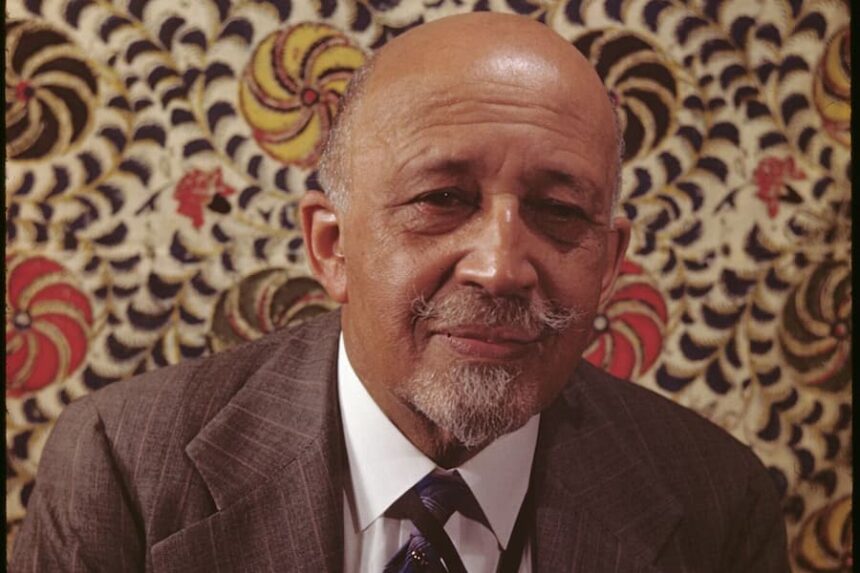William Edward Burghardt Du Bois, commonly known as W.E.B. Du Bois, was born on February 23, 1868, in Great Barrington, Massachusetts, United States.
He was a renowned American sociologist, civil rights activist, and author. Du Bois is widely recognized for his influential contributions to the study of race relations and his activism in the fight for equal rights for African Americans.
Profile Summary
| Full Name | William Edward Burghardt Du Bois |
| Date of Birth | February 23, 1868 |
| Age | 55 (at the time of his death) |
| Nationality | American |
| Occupation | Sociologist, Civil Rights Activist, Author |
| Education | Harvard University, University of Berlin |
| Parents | Alfred Du Bois and Mary Silvina Burghardt |
| Marital Status | Widowed |
Background
Du Bois became a prominent figure in the early 20th century civil rights movement, co-founding the Niagara Movement in 1905. This organization aimed to eradicate racial discrimination and inequality through activism and education. It was a precursor to the National Association for the Advancement of Colored People (NAACP), which Du Bois also played a pivotal role in establishing in 1909.
His achievement no doubt makes him one of the scholars who have left an indelible mark in history. As a writer, Du Bois used his pen as a powerful tool to expose the injustices faced by African Americans. His seminal work, “The Souls of Black Folk,” published in 1903, remains a landmark text in African American literature.
In this book, Du Bois eloquently delves into the concept of double consciousness, which refers to the psychological struggle of African Americans living in a society that views them as inferior.
His powerful prose and intellectual analysis shed light on the experiences of African Americans and challenged the prevailing white supremacist ideologies of the time.
Despite his numerous achievements and contributions to the civil rights movement, Du Bois faced relentless persecution from the U.S. government during the McCarthy era. His activism and association with leftist organizations led to him being labeled a communist sympathizer and subjected to constant surveillance.
However, Du Bois never wavered in his commitment to social justice and continued to fight for equality until his death on August 27, 1963.
W.E.B. Du Bois’ Age
Du Bois passed away at the age of 95 on August 27, 1963.
Family and Siblings:
Du Bois was the son of Alfred Du Bois and Mary Silvina Burghardt. His father, Alfred, abandoned the family when Du Bois was very young, leaving his mother to raise him and his two siblings. Despite the challenges they faced, Du Bois’ mother instilled a strong sense of education and ambition in him.
Education
Du Bois attended public schools in Great Barrington and eventually enrolled in Fisk University in Nashville, Tennessee. After completing his undergraduate studies, he continued his education at Harvard University, where he earned his bachelor’s degree in 1890 and later completed his Ph.D. in history in 1895. Du Bois became the first African American to earn a doctorate from Harvard.
He furthered his education by studying at the University of Berlin in Germany, where he expanded his knowledge in the social sciences and encountered different perspectives on race relations. This experience significantly influenced his later work and activism.
Career and Achievements
- Throughout his career, Du Bois made significant contributions to the field of sociology and played a pivotal role in advancing civil rights for African Americans. He co-founded the National Association for the Advancement of Colored People (NAACP) in 1909 and served as the editor of its magazine, The Crisis, for over two decades. Du Bois used The Crisis as a platform to address racial injustices and advocate for equal rights.
- Du Bois authored numerous influential works, including his seminal book “The Souls of Black Folk,” published in 1903. This book explored the complexities of African American identity and brought attention to the challenges faced by Black individuals in a racially divided society. His scholarship and activism aimed to dismantle racial inequality and promote social justice.
- Du Bois was also a dedicated scholar, conducting extensive research and writing extensively on African American history and culture. His groundbreaking study, “Black Reconstruction in America,” published in 1935, challenged the prevailing historical narrative that portrayed African Americans as passive recipients of freedom during the Reconstruction era. Instead, Du Bois argued that African Americans played a pivotal role in shaping the nation during this period, and their contributions were often overlooked and marginalized.
- He actively participated in political activism and advocated for the rights of African Americans, particularly in the areas of education and voting rights. He attended international conferences, including the Pan-African Congress, where he sought to unite people of African descent worldwide and fight against colonialism and racial discrimination.
Relationship
Du Bois was married to Nina Gomer, whom he met while studying at Fisk University. They married in 1896 and had two children together, Yolande and Burghardt. Tragically, Nina passed away in 1950.
Facts about W.E.B Du Bois
- Du Bois was an advocate for Pan-Africanism, emphasizing the global connection and solidarity among people of African descent.
- He was an early proponent of the idea that education and knowledge were key to overcoming racial discrimination.
- Du Bois clashed with other prominent civil rights leaders of his time, including Booker T. Washington, due to their differing approaches to racial uplift and equality.
- In 1961, Du Bois joined the Communist Party USA at the age of 93, furthering his reputation as a controversial figure.

